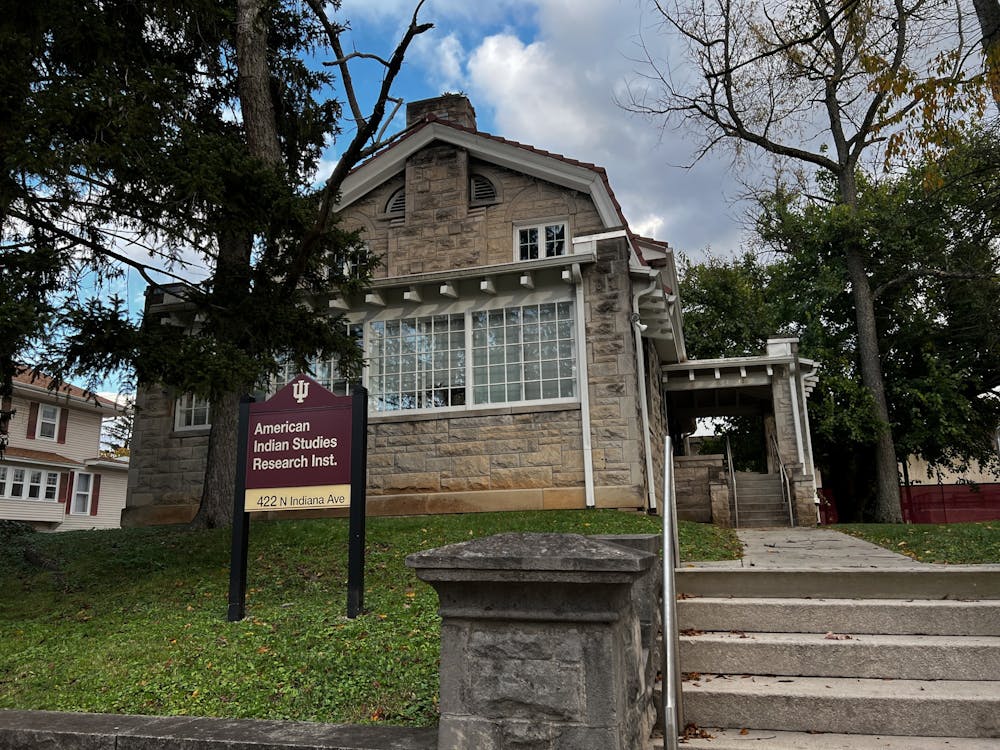More than 40% of the world's estimated 6,000 languages, including many Indigenous languages, are at risk of no longer being spoken, according to the United Nations.
Richard Henne-Ochoa, director of IU’s American Indian Studies Research Institute, is assisting Native American communities’ efforts to revitalize their languages before they become dormant.
The American Indian Studies Research Institute has been involved in the documentation of endangered languages since it was founded in 1985, Henne-Ochoa said. The institute collaborates with tribes by providing them with language materials and teaching resources to use in their language revitalization initiatives, he said.
ICYMI: IU professor Steve Sanders questions IU Board of Trustees search process for President Whitten
Henne-Ochoa said the institute’s work is meant to serve the goals of Indigenous communities to preserve their language and cultural heritage.
“What I'm learning from Native people and Indigenous people is that language is so central to one's identity,” he said. “To be a Lakota speaker is foundational to being a Lakota person. People talk about the need to keep their language alive, or revitalize it, so that they continue to exist as a unique people.”
The Institute developed a K-12 Lakota language curriculum with the Red Cloud Indian School on the Pine Ridge Indian Reservation and is developing a curriculum for the Arikara language. All curriculum projects are done in collaboration with tribal communities, Henne-Ochoa said.
The Institute is also working on a grant proposal for a three-year project, which would provide resources for Indigenous community members to document how their language is used in social interactions, Henne-Ochoa said.
In each of these efforts, Henne-Ochoa said it’s important since nonnative scholars to recognize the history of language recordings and cultural materials being unethically collected from Indigenous communities.
“We have to be very mindful of what that history is and move toward a new paradigm that's built on reconciliation and healing,” Henne-Ochoa said. “We have to work in collaboration with tribes in a way that actually incorporates what tribes want. That’s recognizing their sovereignty. That's respecting their right as source communities to these materials.”
Director of IU’s Archives of Traditional Music Alan Burdette said his department works in collaboration with Indigenous communities.
Halloween 2021: Are black cats adopted less often? Bloomington Animal Shelter data debunks myth
The Archives of Traditional Music is part of a recent effort at IU to digitize historic, physical audio recordings at risk of physically deteriorating. Burdette said 170 different Native American groups are represented in the archive’s collections.
Burdette said the goal of digitization is to preserve and document songs, dances and linguistic materials and distribute them to Indigenous communities.
“We do our best to work with communities to ensure they have access and recordings are theirs to use,” he said. “There’s a long legacy of keeping Native people from practicing their language and culture. These recordings can be invaluable to communities trying to revitalize some of those practices.”
Burdette said he and his colleagues at IU are not the ones revitalizing Indigenous languages. IU may be offering its research collections and materials, but Indigenous communities themselves are the ones leading the effort.
Joel Barnes, director of the Shawnee Language Immersion Program, said he plans to use the Institute’s language materials to aid the Shawnee Tribe’s curriculum.
Last year, Barnes said the tribe declared 2020 the Year of Shawnee Language to express a state of emergency for its language. He said preserving the Shawnee language is imperative as tribal elders who grew up speaking Shawnee are vulnerable to COVID-19.
“As of right now, I only know of one first-language speaker left,” Barnes said. “We’re at a critical stage with our language right now. We’re on the verge of losing it. We need to get moving.”
Barnes said the Shawnee Language Immersion Program’s goal is to preserve the Shawnee language so future generations can maintain their cultural identity.
“Language defines us and gives us a cultural identity,” he said. “It’s important to me that we do all that we can so the younger generations behind us will have everything they need to keep passing the language down each generation.”




